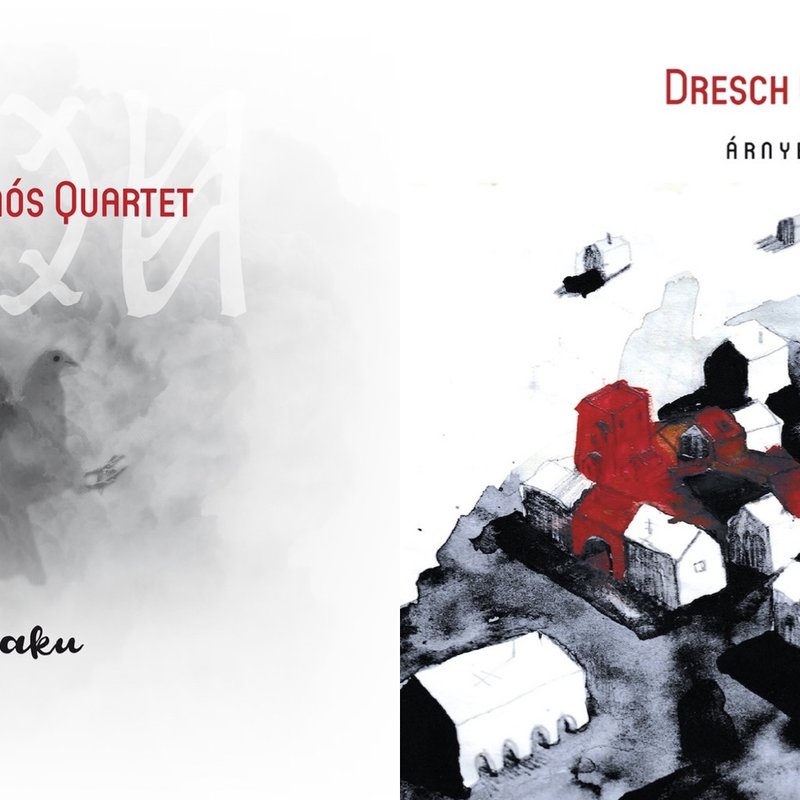
Two new Dresch recordings!
New records by two different Dresch formations have been released by the Fonó!
“Árnyékban” by his classic jazz quartet; and “Ongaku” by his String Quartet with folk musicians.
New records by two different Dresch formations have been released by the Fonó: “Árnyékban” by his classic jazz quartet: and “Ongaku” by his String Quartet with folk musicians.
Dresch Quartet: Árnyékban
The classic and now legendary Dresch Quartet’s newest recording is called: "Árnyékban" [In the shade]. Joining the unique wind player for this recording are: Lukács Miklós (cymbalom), Gányi Marcell (double bass) and Csizi László (drum). Dresch plays tenor and soprano sax, and an instrument of his own creation - the fuhun. All of the cuts on this album are Dresch compositions. The recording was made in 2020 at the Pannónia Studio in Budapest, the cover picture is by his daughter Dresch Anna.
For me being in the shade means
Not being in the commotion, continuous din and chatter…
To watch, contemplate, function
In the cool of the shade.
That’s being in the shade!
(Dresch Mihály)
A cut from Árnyékban:
Dresch String Quartet: “Ongaku”
After playing many concerts together, “Ongaku” is Dresch String Quartet’s second record, but the first record with this particular lineup of musicians. Joining Dresch Mihály on this record are Csoóri Sándor Sündi (viola, tambura), Zimber Ferenc (cymbalom), Bognár András (double bass), with one song sung by Lőrincz Hortenzia. This quartet finds the place where jazz and Hungarian folk music traditions intersect, creating a new quality of music.
Dresch’s musical colleagues are all active folk musicians, who together step into a live creative fusion with a wind player-composer whose life work has formed a whole new style.
This is what Dresch says about the record:
Ongaku means music in Japanese. In Chinese, the symbols for music and medicine differ in only one part of the character. One rehearsal when this composition didn’t yet have its final name, the atmosphere of Eastern cultures spoke to us. In Hungarian thinking the two ideas can also be easily connected. The connection of music and the soul is not a newfangled idea. The positive effect of music was already recognized by the ancient Greeks. It is my hope that this album approaches both meanings. (Dresch Mihály)
A cut from Ongaku:
Both records can be purchased at the Fonó Webshop and through other distributors.